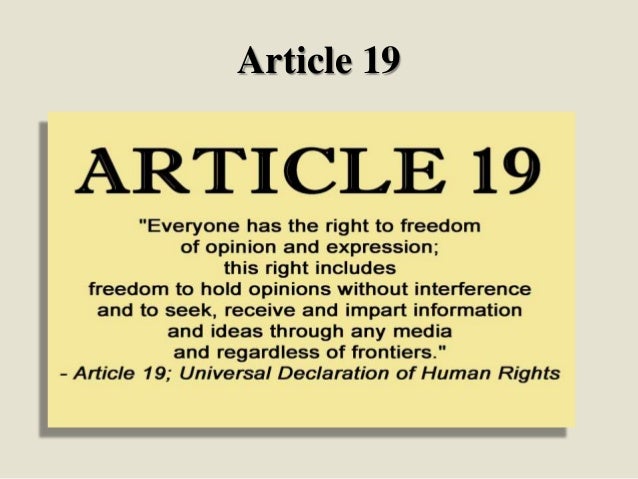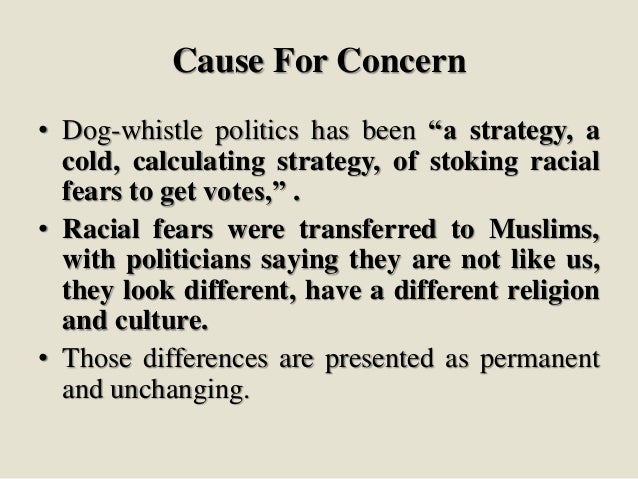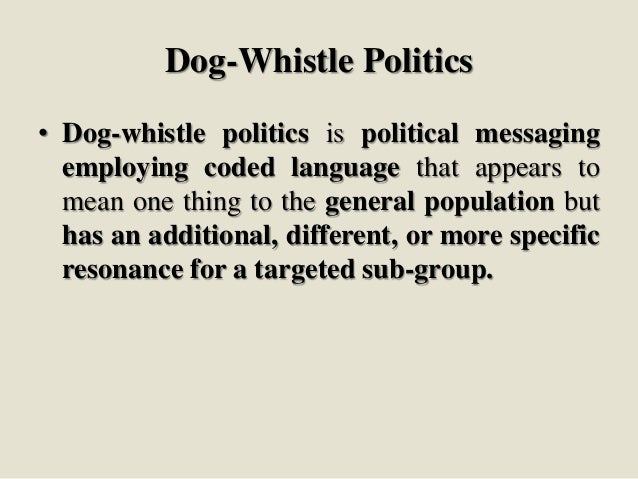
It was a train whistle, folding in Trump’s long-held belief that some people, himself especially, are simply born with superior traits to others. Richard Nixon leaned on it heavily during his 1968 presidential campaign, referencing “law and order” and a “war on drugs,” further codifying racial appeals from Barry Goldwater for “states’ rights” and “freedom of association.” Ronald Reagan took it to another level in 1976, demonizing a “welfare queen” who fraudulently collected $150,000 in government benefits, a barely concealed appeal to the race and class resentments of white voters toward Blacks.īy that standard, President Trump’s riff about the “good genes” found among the people of Minnesota - an 80 percent white state - wasn’t a dog whistle.

"It's called a “dog whistle,” a word or phrase in a speech that is unobjectionable on the surface but conveys a coded message to partisans, by analogy to high-pitched sounds that are audible to dogs but not to people. This article was first published on 29th August 2005.Vendingmachine commented on the word dog whistle This idea was taken over into political contexts as a way of describing a message aimed exclusively at one section of the electorate. The dog-whistle analogy was drawn from Australian sheep-farming, where a farmer uses a whistle which is only audible to one dog.


Crosby had helped Australian Prime Minister John Howard to four consecutive election victories, with the focus of the campaigning on so-called dog-whistle issues, an expression in use in Australia since around 1997. The term dog-whistle politics originates from Australian English, and was introduced to the UK by Australian political strategist Lynton Crosby, who was involved in the 2005 Conservative Party election campaign.
#Dog whistle politics definition archive
There is some evidence for a transitive verb dog-whistle in the same political contexts, with a related participle adjective dog-whistled as in a dog-whistled message.īuzzWord archive Background – dog-whistle politics Dog-whistle also occurs independently when used attributively to modify nouns in phrases such as dog-whistle issues/ topics. The countable noun dog-whistler often describes politicians who attempt to disguise their true feelings on controversial topics such as immigration or asylum. The participle noun dog-whistling is sometimes used to refer to the activity of dealing with controversial political issues in a subtle way. It’s the dog days of summer, and both Republicans and Democrats are embracing pet causes to win voters. Along with campaign slogans such as Are you thinking what we're thinking? the Conservatives got the attention of those voters opposed to immigration, but at no point could they have been accused of being overtly racist. Dog-Whistle Politics: How Getting The Dog Vote Can Help Candidates Running For Office. The Conservatives argued that 'some immigration is essential' and only the large-scale immigration that the Labour government had allowed was damaging. It is therefore a good mechanism for concealing true opinions on highly controversial topics, such as the Conservative Party leader Michael Howard's treatment of immigration issues in the 2005 election campaign.

The advantage of the dog-whistle approach to campaigning is that it avoids the possibility of offending those voters who wouldn't find a political message particularly appealing. The dog-whistle approach to campaigning is … a good mechanism for concealing true opinions on highly controversial topics The analogy then is to put across a political message in such a way that it will only be understood by potential supporters rather than voters in general. A dog-whistle is used to create a special high-pitched sound which only attracts the attention of a particular dog rather than all the dogs around. During the UK election campaigns in spring of 2005, a new phrase entered the Westminster lexicon: dog-whistle politics.


 0 kommentar(er)
0 kommentar(er)
